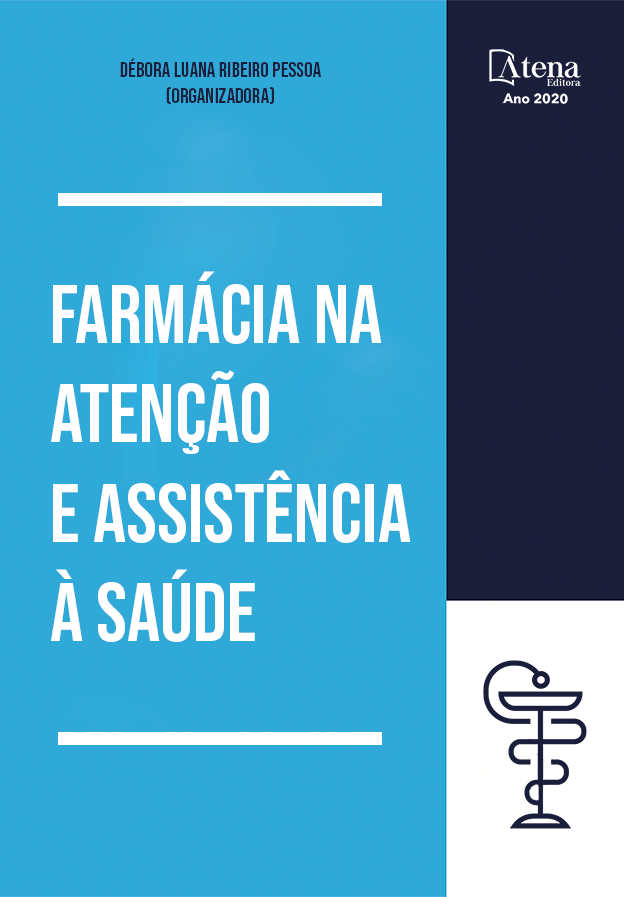
IMPACTO DO FARMACÊUTICO CLÍNICO NA ADMISSÃO HOSPITALAR DA PESSOA VIVENDO COM HIV/AIDS EM SERVIÇO DE EMERGÊNCIA DO SUS
Introdução: Os serviços de urgência e emergência constituem um ponto chave da rede de acesso às pessoas vivendo com HIV/AIDS (PVHA) e o momento da admissão hospitalar é essencial para manutenção da terapia antirretroviral (TARV) e alcance da supressão viral. Sendo assim, no momento da admissão hospitalar, é essencial que os farmacêuticos clínicos dos serviços de emergência façam a reconciliação medicamentosa destes usuários, a fim de detectar e prevenir o desenvolvimento de Problemas Relacionados a Medicamentos (PRMs). Este trabalho tem como objetivo analisar as intervenções realizadas pelos farmacêuticos clínicos em um serviço de emergência de um hospital terciário em Porto Alegre/RS, no momento da admissão hospitalar, quanto à TARV dos usuários com diagnóstico de HIV/AIDS. Metodologia: Estudo Transversal Retrospectivo. Foram analisados os registros das intervenções farmacêuticas realizadas entre 01/06 e 31/08/2015, e coletados dados quanto ao tipo de PRM detectado(s), sua(s) respectiva(s) causa(s), tipo de intervenções realizadas e os resultados das destas, codificados conforme classificação PCNE. Os dados foram analisados por análise estatística descritiva. Resultados: Quarenta e quatro pacientes com diagnóstico de HIV/AIDS foram admitidos para internação hospitalar no período do estudo, onde 30 PRMs potenciais foram identificados nas prescrições em 52,27% (n=23) dos casos. Os erros na prescrição, com informações erradas ou faltando, foram a principal causa encontrada (65,0%) para estes potenciais PRMs. Um total de 32 intervenções farmacêuticas foram realizadas, e em 60,71% dos casos (n=17) o resultado registrado foi a resolução do total do PRM potencial. Conclusão: a reconciliação medicamentosa da TARV é ferramenta potencial, não apenas ao desenvolvimento do papel do farmacêutico clínico nas ciências farmacêuticas, mas na garantia da segurança do paciente e da qualidade da assistência às Pessoas Vivendo com HIV/AIDS.
IMPACTO DO FARMACÊUTICO CLÍNICO NA ADMISSÃO HOSPITALAR DA PESSOA VIVENDO COM HIV/AIDS EM SERVIÇO DE EMERGÊNCIA DO SUS
-
DOI: 10.22533/at.ed.72020151219
-
Palavras-chave: Problemas relacionados a medicamentos; Terapia antirretroviral de alta atividade; Serviço hospitalar de emergência, Assistência integral à saúde.
-
Keywords: Drug Related Problems; Highly Active Antiretroviral Therapy; Hospital emergency services; Integral Health Assistance.
-
Abstract:
Introduction: Emergency departments play a singular role as a healthcare system's entrance door and for the continuum of care of people living with HIV/AIDS, as the hospital admission constitutes an essential moment for the maintenance of proper antiretroviral therapy (ART) and sustaining viral load suppression. As such, it is of utmost importance that, during admission, clinical pharmacists working in emergency services undertake medicine reconciliation of those patients by developing interventions within the multidisciplinary healthcare teams, with the goal of detecting and preventing the development of Drug Related Problems (DRPs). This study aimed to analyze the interventions regarding ART pharmacotherapy made by clinical pharmacists at the moment of admission of patients with HIV/AIDS in the emergency service of a tertiary hospital in Porto Alegre/RS in Brazil. Methods: Cross-sectional study. The records of pharmaceutical interventions developed between 01/06 and 31/08/2015 were analyzed and data collected regarding the types of DRPs detected, their possible causes, the type of intervention made and their results, using PCNE classification for codification. Data were analyzed through descriptive statistics. Results: Forty four patients diagnosed with HIV/AIDS were admitted in the studied period. Thirty DRPs were detected in the prescriptions of 52,27% (n=23) of those patients. Prescription errors, with wrong or missing information, constituted the bulk (65%) of the causes for potential DRPs. A total of 34 pharmaceutical interventions were made, with complete resolution of the DRPs found in 60,71% (n=17) of the cases, thus avoiding or preventing the occurrence of DRPs. Conclusions: Medication reconciliation of ART is a potentially useful tool, not only in the development of the role of clinical pharmacy as a part of pharmaceutical sciences, but also in patient safety management and the quality of assistance delivered to patients with HIV/AIDS.
-
Número de páginas: 13
- Hernando Salles Rosa
- Lidia Einsfeld


